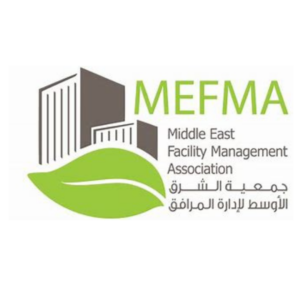8 ways room booking solutions boost business efficiency
There’s no denying that a well-run meeting can carry big benefits for all involved. Teams get on the same page. Strategies are cemented and translated. New ideas and approaches are developed.
That all sounds great… but the fact is many meetings are far from well-run. Companies can quickly see efficiency plummet due to double bookings, no-shows and disorganised discussions.
Overcoming these ongoing problems for businesses worldwide requires an effective room booking suite. These solutions cut through the confusion that can often come with getting meetings set up, saving a lot of time and ensuring meetings are actually meaningful, and not just a lot of hot air.
We’re here to outline how these systems benefit how efficiently your meetings run, and what you should be looking for in your search for the best booking solution.
The perpetual problem of unproductive meetings
First, how big of an issue is unproductive meetings in today’s information-driven environment? In short, quite a costly one: it is estimated that in 2019 alone, poorly organised meetings cost UK companies over £43 billion combined.
That’s far from insignificant, and that is just the financial implications. Professionals also waste around 31 hours a month in unproductive meetings, while the average delay for senior executives to arrive at a meeting is 15 minutes and 42 seconds – that’s nearly 6 days per year.
- Time spent in meetings has risen up to 10% since 2000
- The average employee at any level has 8 meetings per week
- 47% of employees believe most of their wasted time is due to meetings
There are several standout reasons for these telling statistics:
Painful organisation processes
Emails. Phone calls. Paper trails. These outdated approaches for organising meetings extend and confuse the whole process, be it through crossed wires or simply the heavier workload onto your administrative staff.
Alternatively, there could be a mix of systems employed in getting a meeting organised, which is far more long-winded than everything under one solution.
Administrative errors
There are numerous common errors that can make meeting room organisation a nightmare. Disparate systems can make it unclear if a room is booked or not, leading to double bookings.
Poorly communicated cancellations can lead to people arriving for meetings that have been rescheduled or no longer exist – particularly embarrassing when they involve people outside your company.
Lack of available space
Meeting space is a valuable resource, and it often feels like there’s never enough to go around.
Whether that’s actually accurate, or that space is not being utilised effectively across your facilities, this lack of availability makes it a struggle to get meetings sorted, and can build frustration throughout your workforce.
Equipment set-up
There’s more to a typical meeting these days than simply people showing up. Are you making a digital presentation? Does catering need to be arranged? Will you be sketching things out?
These all require equipment that might not be in a meeting room at all times, and problems arranging this ahead of time can lead to lengthy delays or ineffective discussions.
These issues surrounding poorly organised meetings are nothing new – they’ve plagued many businesses for decades. And, although face-to-face meetings all but disappeared in 2020 due to COVID-19, when they become an option again, these issues are sure to resurface.
Plus, on top of that, employees and visitors will be more conscious of the safety and spaciousness of their meeting rooms than ever before, adding yet another challenge to the mix.
But, through the right booking solution, organising meetings can be sped up significantly and made much more watertight and secure, allowing teams to make the most of these sessions. Here are just 8 of the ways these will help boost efficiency in your organisation…
1. Everything under one roof
The fundamental benefit of a comprehensive booking solution is that it removes the need to employ multiple systems to get a meeting arranged. Instead of having to check separate calendars and schedules to see what rooms will be free at a certain date, and then emailing or phoning out to attendees to secure their availability, this can all be managed in one place.
This not only makes the management of meetings more straightforward and efficient for your employees, who can see and do everything they need from one portal, but it reduces the chances of human error.
With everyone accessing a single booking solution, everyone knows what is in the pipeline across the site, so there’s a greatly reduced risk of double-bookings or meetings being ignored. No paperwork. No problems.
2. Always know what rooms are available
Following on from this, a central booking solution will make it clear to all employees what rooms are available and when they’ll be in use. This is the primary culprit for double-bookings and embarrassing situations where colleagues walk in on meetings currently in progress because they assumed a room would be free.
Rather than leave you scrambling to find an alternative, a booking suite will give a clear, visual indication of what spaces are free, alongside a real-time schedule of upcoming bookings.
Plus, a strong booking solution will enable you to filter your meeting rooms by dates, times, number of people, room features and more, so you can quickly find the most fitting location for your next meeting in seconds, instead of wasting time asking around the office.
3. Empower people to manage their own bookings
Placing all the burden of arranging and tracking all meetings on your administrative team is a sure-fire way to reduce the efficiency of your organisation. Particularly when this is just one aspect of their work routine, it opens up the opportunity for crossed wires and miscommunications, leading to inadvertent double-bookings and missed attendances.
The right booking solution will enable your workforce, visitors and customers to confidently make their own bookings, rather than need to run it through your admin department. This releases them of this burden so they can focus harder on their other duties, while empowering more people with the capacity to plan meetings out and arrange them immediately.
It will also encourage more productive, engaging meetings, due to your team actively pushing for these themselves rather than passively going with the motions.
4. Automatically trigger room setup tasks
Instead of wasting precious minutes rushing to find a projector or more chairs to fulfil your requirements, through these systems you can automatically trigger all the necessary preparations, sending tasks through to the relevant resources.
Cleaning the space. Arranging catering. Ensuring all AV equipment is in place. Supplying the right number of chairs. Everything can be immediately assigned in a solid booking solution and passed directly onto your FM team to manage.
5. Communicate meeting details seamlessly
Another pertinent problem that leads to meetings being extended or derailed is making sure everyone is aware that a meeting is taking place, where it is and at what time. For both internal and external attendees, this can be hard to manage manually, as it is easy for appointments to fall through the cracks or not be communicated clearly enough.
Room booking solutions remove this concern. Once a room is booked out and the attendees are decided, it can immediately send notifications to the relevant individuals to confirm their availability, so everyone is on the same page and any adjustments can be made depending on people’s schedules.
For example, our own Facilities Booking Suite integrates with Microsoft Office Appointments, so that everyone required is informed of the time, date and location of a meeting at the click of a button, rather than needing to contact people individually.
Plus, it also benefits the swiftness and effectiveness of visitor management. Workplaces can be notified when they arrive. They can be quickly checked in. Admin can automatically print out name badges for them while on site.
6. Better embrace flexible working
Particularly following the events of 2020, more and more companies have shown a desire to introduce techniques like hot-desking and open-plan offices to limit the number of people on-site at a given time.
A booking solution can help you delve further into flexible working by making it clear what desks or spaces are available in real-time. This helps your employees organise where they can set up once they arrive for the day ahead, and give you an indication of whether you need to establish more desks in order to meet demand.
7. Boost energy-efficiency with smarter buildings
Another efficiency-focused benefit of a room booking solution tied to a broader CAFM platform is its ability to connect with your smart building solutions.
For instance, when meeting rooms or workspaces aren’t booked within the system, there is no need to give them the same heating or lighting as when they are occupied. Having your system recognise this and automatically trigger room settings based on occupancy can lead to significant cost savings and enhanced energy-efficiency throughout your site.
8. Enhanced space management
Finally, another big advantage offered by a central booking solution is the ability for FMs to see how space is being utilised across their site.
Are certain rooms more popularly booked than others? Do people purposely ignore certain meeting spaces? Are employees often holding meetings with 5 or fewer people in a room that can comfortably hold 20+?
With clear oversight over your space management, you will be able to make data-driven decisions over how to best harness space across your facilities, from whether there’s a genuine need for more meeting space, to how you can convert rooms or make them more visible for your employees.
What you need for your digital booking suite
Now you’re fully aware of how a comprehensive room booking solution can make meetings far more manageable and efficient, what should you be looking for when introducing one into your organisation?
Here’s a quick breakdown on what the best systems should bring to the table:
- Ease of use: User buy-in to these systems is vital. It is important that whatever system you use is intuitive for all users, so they are encouraged to use it on a regular basis.
- Always accessible: Staff should be able to arrange meetings from any time and place, whether at their desk or from a mobile device.
- Real-time information: To ensure room occupancy levels are always up-to-date when there’s a need for a spontaneous meeting, real-time information is key.
- Staff permissions: It may be beneficial for you to restrict certain meeting rooms for senior members of staff, or give them wider options for where they hold meetings.
- Multiple booking options: You might want to offer the ability to book through a desktop or mobile device, or through a display screen outside meeting rooms, or both.
- Reporting capabilities: To keep track of room usage and other space management statistics, the booking solution should allow you to produce easy-to-digest reports.
- Capacity to customise: There isn’t a one-size-fits-all booking solution, so you’ll want assurance that the software can be adapted to meet your exact needs.
- Strong supplier reputation: Avoid any problems with the ongoing use of your booking system by purchasing from a supplier with a great track record and a dependable support network.
Our dedicated Facilities Booking Suite delivers all of this and much more. With an easy-to-use, unified view of all spaces across your properties, you can ensure all meetings run smoothly and no time goes to waste.
- Coordinate bookings, visitors, catering, maintenance and more from one interface.
- Make it straightforward to organise recurring bookings
- Connect your booking system to interactive room signage and in-meeting displays
Get in touch with our team today to enhance your company-wide bookings like never before.
Leading solutions for property occupiers, owners and service providers & contractors.Facilities Management software

Empowering a Greener NHS: Why smart energy monitoring is key to decarbonisation and better patient care
Byline by Nicholas Hughes, overseeing Healthcare Solutions at MRI Software The NHS’s commitment to achieving net zero emissions is entering a decisive new phase. With NHS England requiring all Trusts and Integrated Care Boards (ICBs) to submit refres…

